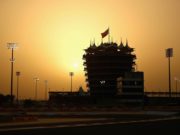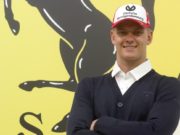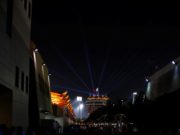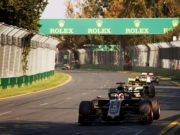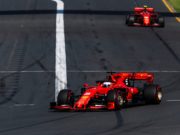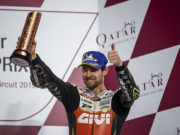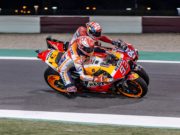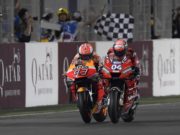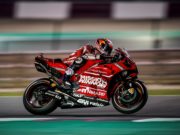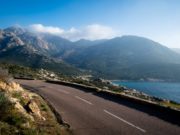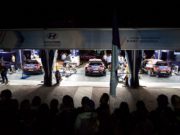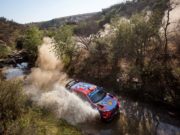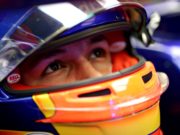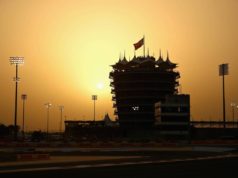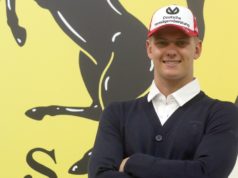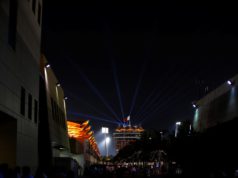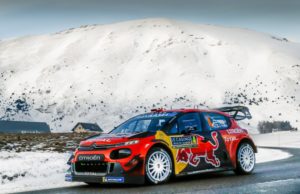Monaco is a race like no other. You don’t need to be an F1 aficionado to know that much. The tight, twisting circuit that threads its way through the famous streets of Monte Carlo is a one-of-a-kind throwback to the eras of Fangio or Caracciola. And even now, decades later, this remains the crown jewel of the Formula One calendar.
It’s the race every single driver on the grid wants to win – or win again, in Lewis Hamilton’s case
But victory in the Principality isn’t quite like winning anywhere else. The greatest Grand Prix of them all offers a unique challenge not only to the drivers but the teams as well.
Monaco is the ultimate drivers’ circuit – a track all about precision. Drivers spend hours at the factory ahead of the race studying and preparing for this one race. Some go even further…
“I’ve been doing this for a long time now,” says Lewis Hamilton. “I spend a lot of time at the factory with the engineers to understand past races. Just the other night, I was driving around the track in my Smart car, visualising the circuit. It’s not so easy, though, when there are lots of cars around!”
As Lewis explains, racing at Monaco is all about peaking at exactly the right moment. A driver must feel his way into the weekend, building up confidence and momentum as the track develops. From the moment they turn left out of the garage on Thursday morning in FP1, this process begins. They’ll push that bit harder, flirt that fraction closer with the barriers and brake a touch later, as they find more time from within themselves.
“The most important thing is that you have to learn to walk before you run,” says Lewis. “You have to build up to the pace so that, by the time you work up to that second run in Q3, you’re at 100%.”
You’ll often see drivers who are quick in the earlier sessions crash out on Saturday morning in FP3 where they’ve pushed just that bit too much, too early.
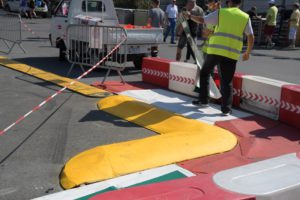
Monaco is not a circuit that forgives
If you misjudge your braking or your turn-in point even by a matter of millimetres, you’ll end up in the barriers. And if you lose a session in Monaco, you’ll struggle to recover from it.
“It’s one of those weekends when you really need to be on the top of your game,” explains Valtteri Bottas. “You need to be so focused on what is a mentally exhausting weekend. You need to be focused on every single car of every single lap, because one mistake will cost you.”
Then there’s the added challenge of 2017’s wider, heavier, faster cars. “We have new cars this weekend which are wider and faster, so that’s going to be a massive challenge,” says Lewis. “In trying to push the car as close as you can to the limit, it’ll be a real test of your awareness of where the car is. I’m sure there will be some brushing of the barriers…”
Monaco is the one race of the year when the Grand Prix can almost feel like a side show to the main event
Amongst the boat parties and the superstar celebs, having a distraction-free weekend is a huge part of the challenge for the drivers.
To combat this fatigue, the engineers spend a lot of time ensuring that their drivers are able to break up their time and switch off. It’s tough, with Monaco a busy weekend from a media and marketing perspective. But this is crucial in allowing the drivers to relax and get away from what is a very intense weekend, with immense pressure.
“It’s a circuit which is all about mental strength,” says Lewis. “You need to be sharp and clear. Experience counts here too – that helps massively in setting the car up.”
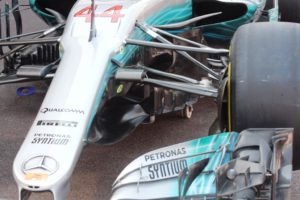
Ultimately, Monaco is a weekend all about compromise, from the engineering setup to the cars themselves
The pit wall, for example, sits one story above the compact garages rather than overlooking the start finish-line as it does at every other circuit.
While engineers don’t necessarily need to see the cars to engineer them these days, instead relying on bespoke software for strategy and live feeds for visual aids, they do like to be able to see the garage. In Monaco, the occupants of the pit wall have to rely on cameras to show them what is going on. It may seem simple – but good communication becomes even more important in that environment.
Logistically, too, Monaco is tricky to say the least. A distinct lack of garage space means the engineers share their office with front wings, floors and hydraulic systems. The frequent support races during the weekend mean they also have to deal with a near constant level of noise, as cars fly past while important debriefs are underway.
There’s not much space downstairs either. The tyre technicians, for example, have to work down in the harbour – carrying all of the tyre sets up to the pit lane as and when they’re needed because there is simply not enough space in the garage. These factors heap extra pressure on what is already a tough weekend for the team.
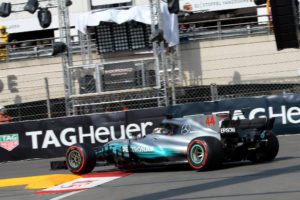
Track position takes on an even greater level of importance and must be considered in any strategy move here
When you’re in the lead of the Monaco Grand Prix, it’s all about protecting that position and managing the advantage. The last thing you want to do is offer the trailing car clean air and an opportunity to pass through strategy. .
In fact, you’ll often see the leader driving within their means through fear of storming into a lead, only to see their advantage wiped out when they’re left on worn tyres later in the stint. This year’s tyres offer a new challenge, as teams expect to be able to complete the entire race distance on either the UltraSoft or SuperSoft. That low degradation rate means a smaller delta between the tyres, which will only make it trickier to pass.
All these factors converge to make Monaco the stiffest test a driver can face in F1. Amid the yachts, glamorous guests and VIP events, it all comes down to mastering those 3.337 km of undulating tarmac. “Monaco is always a great challenge,” smiles Valtteri. “We live for these kinds of challenges.”


